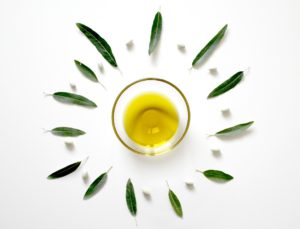Can Vegans Eat Ghee?
With the proliferation of vegan-friendly items available in supermarkets, it is understandable that an inquisitive vegan could notice ghee, a butter substitute, and ask ‘can vegans eat ghee.’
Ghee is a milk oil that comes from an animal source because it is made from milk. It is made by slowly simmering unsalted butter, also known as clarified butter, and gradually evaporating the water component. Additionally, it turns into a bright yellow version of butter.
Any food which has the presence of animal ingredients animal is not vegan-friendly.
Ghee is a dairy product that consists of the absence of milk solids, making it lactose-free, although it is neither dairy-free nor vegan. If you are a vegan attempting to recreate your favorite Indian dish the first question which pops up is “Can Vegans Eat Ghee?”
We will go through what ghee is, why it is not vegan, and what vegans may use as its alternative.
Is Ghee Vegan?
The answer is no, ghee is not vegan, as it comes from milk.
Vegans refuse to eat any animal or non-vegetarian products. Veganism is more strict, prohibiting the consumption of meat, eggs, sweets, and all other animal products in any form.
Vegans, according to the Vegetarian Society, are those who do not consume animal slaughter products or by-products.
Its health advantages are becoming more widely acknowledged, and many people are beginning to utilize it to cleanse and renew their brains and bodies, as well as preserve ideal health.
Ghee is a non-vegan food since it primarily consists of cow milk or buffalo milk. It is an Indian traditional butter that has long been popular as a cooking essential in Indian, Middle Eastern, and Southeast Asian cuisines.
You have undoubtedly seen it on restaurant menus as a healthier alternative to butter or as a paleo diet staple. However, remember that you do not have to live up to any standards if you are attempting to live a plant-based lifestyle.

What is Ghee?
Ghee is commonly known for its popularity as a cooking oil in Indian, Pakistani, and Bangladeshi cuisines.
It is made from butter, which comes from milk, generally from cows. It is made by melting the butter and separating the butterfat from the milk particles and water.
Unlike regular butter, cooking ghee for a longer period of time often gives it a more nutty flavor. On the other hand, ghee is a form of butter or cream-based animal-derived oil.
When cooking butter the water breaks the butterfat and evaporates, separating the liquid from the milk solids. The particles, which are sugars and proteins, are scraped out, leaving a condensed liquid fat known as ghee.
It is also present in Indian mythology, notably in the Bhagavad Gita and the Rigveda, and has a long history of usage in religious rites and traditional Ayurvedic treatment.
Due to its relatively high smoke point, or the point at which it begins to burn, ghee is the recommended oil for specific meals. This is roughly 250 degrees Celsius (or 485 F) in the case of ghee, making it ideal for high-temperature cooking.
On the contrary, butter burns at a considerably lower temperature. It takes on new qualities when it is clarified, eliminating the water and milk particles.
Removing the milk solids is the first process after the water in the milk has evaporated, and the remaining material is transparent, pure butterfat known as ghee.
Many people confuse ghee with butter, although there are some subtle differences. Clear butter is pure butterfat as a result of boiling butter until it removes all milk solids and water.
Vegan Alternatives to Ghee
The good news is that there are several vegan-friendly alternatives to ghee that you can use while cooking.
Vegans are fortunate in that both commercially available and handmade vegan ghees are accessible. To imitate the deep color and richness of the conventional dairy product, these animal-free ghees employ a blend of vegetable oils and spices.
On the other hand, other vegetable oils that can be an alternative instead ghee include coconut oil, mustard oil, safflower oil, sunflower oil, rapeseed oil, and sesame oil, all of which have high enough smoke points to handle most high-temperature cooking.
Is Ghee Dairy-Free?
Commercial ghee is not dairy-free, and it is certainly not vegan. Vegan alternatives, such as vegan butter, vegan cheese, and vegan yogurt, are available in supermarkets. There are also excellent vegan ghee recipes.
Ghee is high in fats and offers sufficient energy. Ghee is present in a variety of culinary and frying applications. It also has butyric acid in its nutrition, which aids in immune maintenance.
The use of butter is common when making ghee, which often uses dairy milk from buffaloes, cows, or goats. Even though it contains less lactose than butter, it is nevertheless a product of animal cruelty.
Farmers sometimes link mother cows to unsterilized electronic milking equipment, causing illnesses such as mastitis. Ghee-makers transform butter into ghee by heating it until the butterfat separates from the milk solids and water completely.
Manufacturers remove the milk particles after the water evaporates, leaving transparent, pure butterfat. The main difference between ghee and other kinds of butter is the simmering time. Ghee takes significantly longer to cook, giving it a nutty taste.
Verdict
Ghee is not vegan by virtually any definition, so if you are trying to keep to a vegan diet, we recommend vegan alternatives instead. Despite the fact that ghee has been used in Indian cookery for hundreds of years, it is just now becoming popular in the United States.
Completing the production of commercial ghee without the use of animals is not possible. Thus vegans should avoid it if they wish to follow vegan guidelines.
Making ghee comprises of clarifying procedure that removes the lactose and casein from butter. If you are unsure whether a curry or ghee has animal-free products in the ghee, check the label on the packaging or research their social media page or website.










